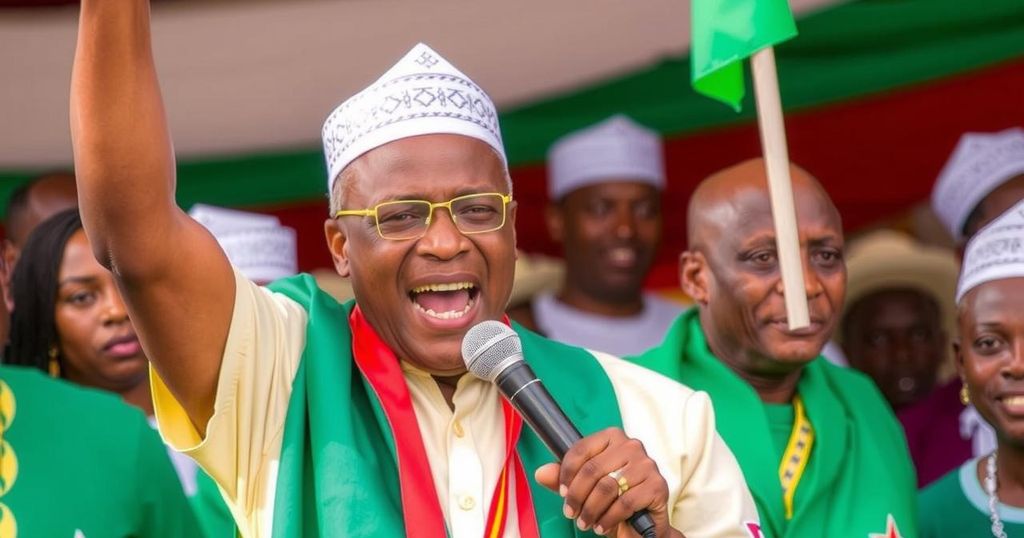Chad’s Ruling Party Secures Majority in Controversial Elections with Boycotts

Chad’s ruling Patriotic Salvation Movement has won a majority in the National Assembly elections, securing 124 out of 188 seats amid a boycott by opposition parties. The election, held on December 29, recorded a participation rate of 51.56%. Critics labeled the electoral process a “charade,” raising concerns about its legitimacy against a backdrop of significant security issues in the nation.
Chad has witnessed a significant political development as the ruling party, the Patriotic Salvation Movement (PSM), has reportedly secured 124 of the 188 seats in the National Assembly during the recent parliamentary elections held on December 29. Ahmed Bartchiret, the head of the electoral commission, announced these provisional results, noting a voter participation rate of 51.56%. This election was largely boycotted by over ten opposition parties, which raised concerns regarding the overall legitimacy of the electoral process. President Mahamat Idriss Deby’s administration presents the election as a critical step towards the nation’s transition to democracy following his assumption of power as a military leader in 2021, succeeding his father, the long-serving Idriss Deby Itno, who ruled Chad for three decades.
Despite being heralded as a milestone in democratization, the parliamentary elections have been labeled a “charade” by opposition groups, who feared similarities to the previous presidential election deemed not credible by observers. The backdrop of the election is one of heightened security challenges in Chad, facing threats from extremist groups in the Lake Chad region and a shift away from military collaboration with France, a former colonial power. This realignment mirrors recent trends in the Sahel region, where nations like Mali and Niger have fostered new ties with Russia after recent coups. Compounding the political strain, Chadian security forces recently thwarted an alleged attempt to attack the presidency, further underscoring the volatility in the country’s political landscape.
Chad has experienced a tumultuous political climate following the death of President Idriss Deby Itno in April 2021, leading to the military’s assumption of power by his son, Mahamat Idriss Deby. The interim government has been under scrutiny for its consolidation of authority and the postponement of democratic processes. The December 2022 parliamentary elections were framed by the administration as a step toward restoring democracy; however, widespread opposition boycotts have called into question the legitimacy of the electoral process. Additionally, Chad’s security situation faces challenges from armed insurgent groups, contributing to the instability of the region.
The recent parliamentary elections in Chad, dominated by President Mahamat Idriss Deby’s ruling party, raise significant questions regarding the democratic process amidst widespread opposition boycotts and security challenges. The PSM’s victory, while presented as a move toward democratization, is heavily criticized, suggesting the need for a more inclusive and credible electoral framework. As Chad navigates its complex political landscape, the response of the international community and the domestic populace will play pivotal roles in shaping the future of governance in the country.
Original Source: www.aljazeera.com






